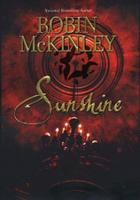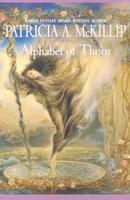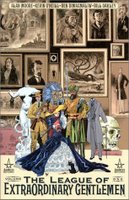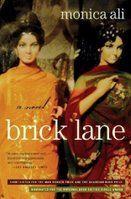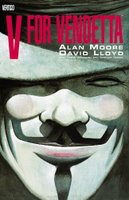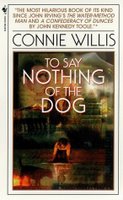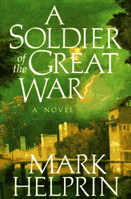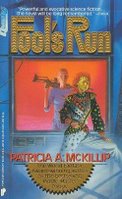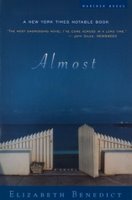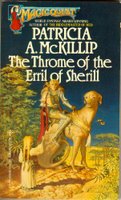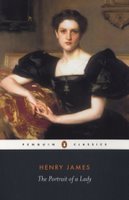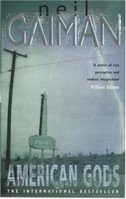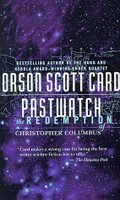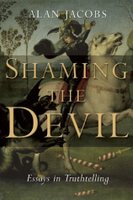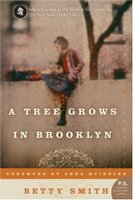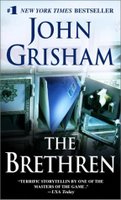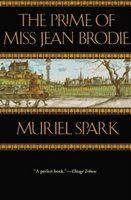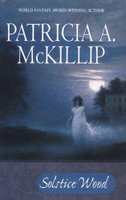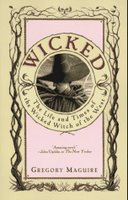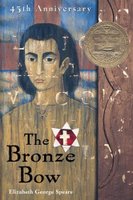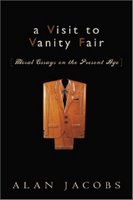This is a mysterious, moving, and haunting work, and the first science fiction by Patricia McKillip that I've read (she's only written a couple, as far as I know). As in other McKillip works, there is a beauty and a power to her language, although here her tone and imagery seems perfectly suited to the futuristic setting. The story begins and ends with the likely-insane prisoner Terra Viridian, who has been sent to the space prison orbiting Earth, known as Underworld. All the other characters and threads of the story eventually get connected to Viridian and the unearthly vision that made her kill over a thousand people and made her crazy.
McKillip's futuristic is different and believable; it makes sense without an overwhelming amount of detail. For instance, the Suncoast Sector is immediately recognizable. Music also plays a large role in the story, and the futuristic musical instruments are referred to just enough to give hints of what they might be (for instance the "cubes," which are some kind of strange percussion instrument akin to drums). The music is also still connected to the past by way of the ancient instruments pianos and guitars that bar owner and music afficionado Sidney Halleck collects and the ancient music, such as Bach, that the Magician plays.
The book is full of interesting, fascinating characters, all with their own stories and problems. A psychologist comes to Underworld to run an experiment on Terra Viridian; they hook up a computer to her brain and train it on her thoughts so that they can see the images she sees, but even then they can't make any sense of it. The Magician's band gets invited to give a performance for the prisoners at Underworld, and unbeknownst to them they bring along Terra's twin sister (who has been in hiding for years), and the guard Aaron whose wife was murdered by Terra and has been trying to track her sister down for years.
The fool's run of the title is a poker hand: "Ten, Jack, Queen, King, Ace of Hearts, and the two wild cards, the jokers, the jesters", but it's also the foolish race through space that the Magician makes from Underworld in his ship, the Flying Wail-- he knows he won't be able to get away, and has no weapons to protect himself, but it gives him and Terra Viridian enough time to communicate some part of the vision that made Terra crazy.
There are hints early on that the Magician is psychic-- he knows things about peole he shouldn't, and claims that he heard it in the intonation of their voices. When he meets Terra at Underworld (almost by chance), he sees her vision-- and during the fool's run of a chase, he is able to share enough of it to Aaron and the head of Underworld. Terra is a psychic who has somehow been caught up in the compelling, beautiful, foreign vision of some immense alien creature far away as it goes through its harsh life cycle, and this was what caused her apparent insanity and why she killed all those people. It's a beautiful, strange vision, and even the other people who only experience it second-hand are clearly haunted by it.
Very poetic; even the prison, Underworld, and the Magician's flight from it, becomes a version of the Orpheus myth. Beautiful descriptions of music, as in many of McKillip's fantasy works. Sidney Halleck, the lover of antique music, says:
I don't believe anything is ever really lost. Not a note of it. I think we dwell among the echoes of all the music ever played just as surely as we dwell among our ghosts. No instrument is ever obsolute; someone is always born to play it. You play music hundreds of years older than you are; it lingered for that long in the air, beyond all the noises of the world, until you heard a fragment of it, between noise and noise, an intimation of its existence. Then came the quest for it. The hunger.
| Title: | Fool's Run |
|---|
| Author: | Patricia McKillip |
|---|
| Date published: | 1987 |
|---|
| Genre: | Science Fiction |
|---|
| Number of pages: | 221 |
|---|


